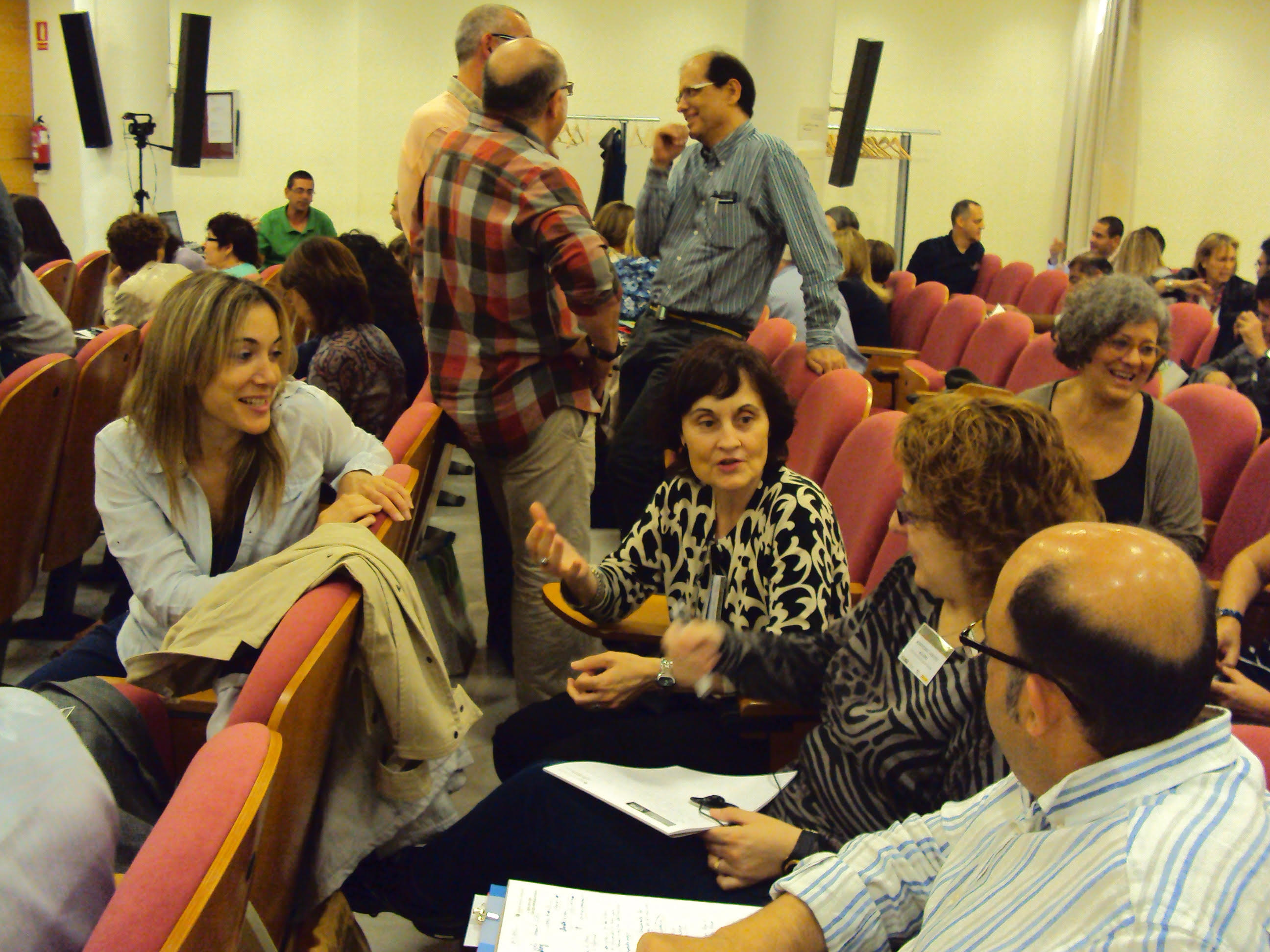THEMATIC DISCUSSIONS

This conversation will focus on identifying gender gaps and designing training strategies that help to eliminate gender gaps in different areas:
- The representation of women in training processes. It is about promoting a balanced presence of women authors, trainers, facilitators and speakers, among other roles that support the training spaces.
- Incorporate gender mainstreaming into cross-cutting policies such as public contracting or budgeting.
- Deepen the statistical analysis that involves obtaining data disaggregated by sex and learning how to develop gender indicators.
- In sectoral policies it is important to learn how to incorporate the gender perspective from the diagnosis to the planning and evaluation of the policy in question.
In human resources policies it is essential to know the gaps in order to intervene with actions that minimize these gaps. We are referring to the differences in the horizontal and vertical career, the wage gap and, above all, the differences in terms of work-life balance and co-responsibility.
Speakers:
María Amor Sánchez de Ron (INAP)
Elena Perez Fernández (Barcelona City hall)
Eulalia Pla Rius (EAPC)
María Dapena Gómez (Vigo City hall)
The thematic conversation will address two of the problems of corporate training in the public sphere that are identified on a recurring basis: the strategic value of training and its transfer to the workplace.
These are problems on which extensive work has been done and on which there is an extensive bibliography. However, the efforts made have not lived up to the expectations placed. The resulting practical application has remained isolated efforts that have not allowed the initiatives implemented to scale up. For the year 2023, INAP, within the Teaching Innovation program (INAP Learning Strategy 2023-2024), will launch new initiatives, including the so-called Response Groups that will work on these issues with the LIP methodology (INAP Public Innovation Laboratory) and for the development of which - and for the entire learning community in general - will be of great help to establish an open debate on these aspects at the EDO 2023 Congress.
Coordina: Patricia Pérez Dios (INAP)
Ponentes: Nieves Aliagas Gil (Ministerio de Industria Comercio y Turismo), Enric Herranz (Diputación de Barcelona) and Sylvia Alonso Codina (EAPC).
It is in the second decade of the 21st century, coinciding with the emergence of the Internet and social networks, when two antagonistic lines on the impact of technology are virulently drawn. On the one hand, the techno-pessimists (led by the theses of Nicholas Carr, in his seminal work Superficiales of 2011); and, on the other, the techno-optimists, who trust in the social capacity for progressive and adequate adaptation.
Recently, a third way has appeared that brings together the two previous trends and that indicates that the benefit that the technological impact brings when the necessary adjustments are introduced is compatible. Daniel Innerarity's thesis in his work Gestión del Desconocimiento (2022) already points to some practical keys.
The thematic talk will also address the new parameters related to a more conscious use of technology; the necessary improvement in the training of new (and more demanding) cognitive processes (attention, concentration and critical thinking) and the introduction of new tools for the presentation, filtering and contextualization of information (personal and organizational content curation, visualization of information, etc.).
The aspects involved and their impact on the traditional disciplines of knowledge management, training, learning and the development of people and organizations will also be explored. Finally, taking advantage of the collective intelligence of the people attending the congress, they will discuss and show their best practices.
Speakers:
Jesús Martínez (CEJFE)
Carme Bonet Anglarill (CEJFE)
Jordi López-Camps (Autónomo)
Manel Muntada (CEJFE)


